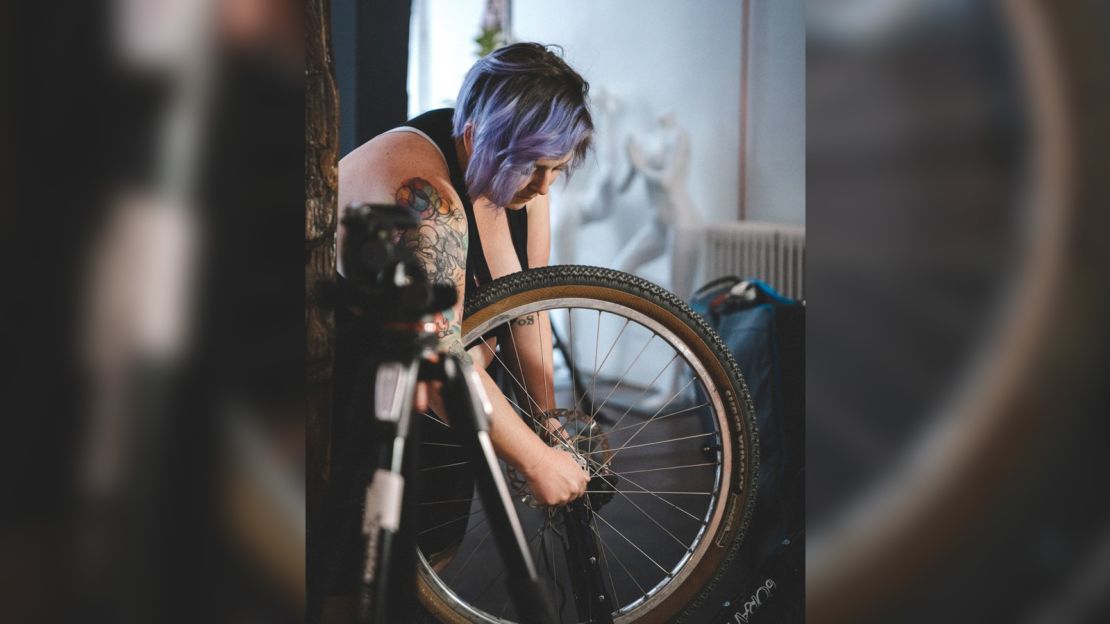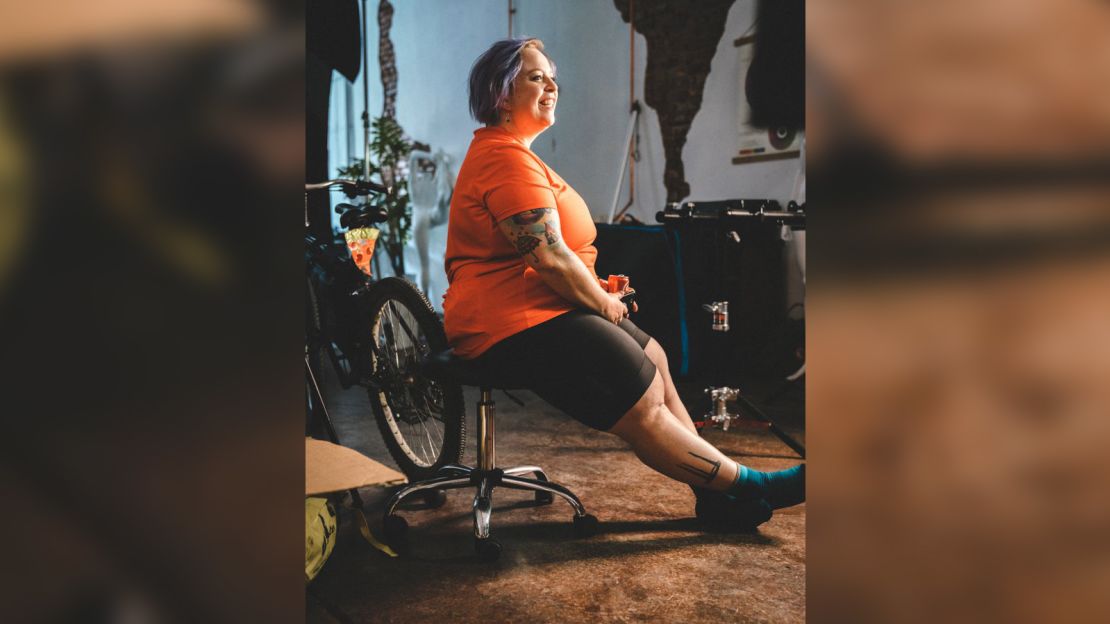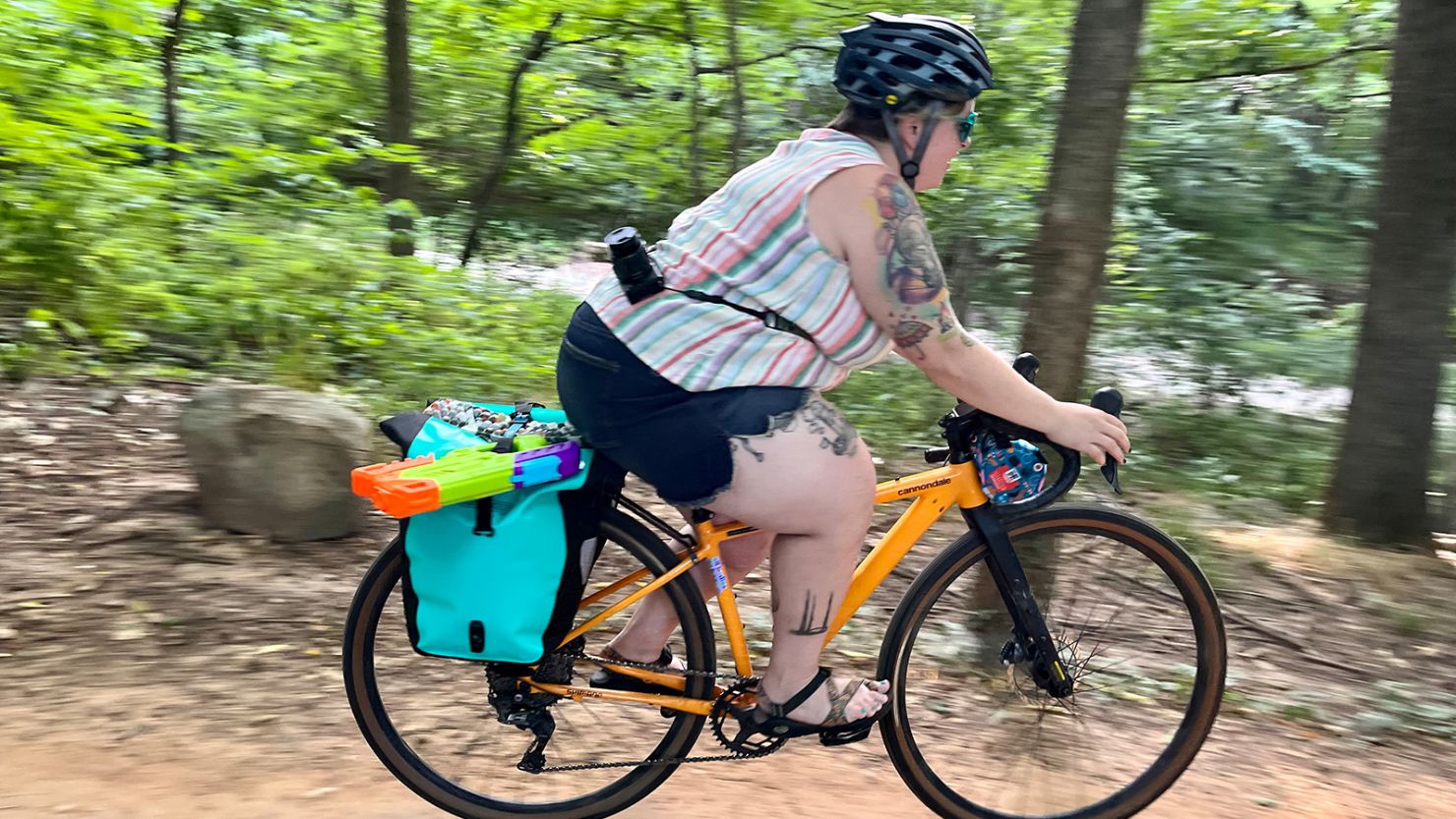Editor’s Note: Sign up for CNN’s Life, But Greener newsletter. Our seven-part guide helps you minimize your personal role in the climate crisis — and reduce your eco-anxiety.
Nine years ago, cycling activist Marley Blonsky was heartbroken and reeling from a divorce, until she found herself on a bike.
Today, Blonsky, a former environmental logistics manager, is the co-founder of All Bodies on Bikes and a trailblazer of the body-size inclusion movement within the cycling world.
Blonsky works with the cycling industry to design activewear that fits larger bodies, create inclusive biking groups around the country and inspire people of all sizes to get on a bike and ride.

A disastrous first ride
In 2013, Blonsky was just-divorced, living in Seattle and working as a Global Environmental Manager for Expeditors International.
“I was single, 26, and trying to figure out who I was,” she recalled. “I sold my car and was taking the bus. From my seat I kept seeing all these people riding bikes. It just looked so cool.”
Her first ride was something of a disaster.
“During my first commute to work my panniers (bike bags) fell off the bike, in the middle of the road!” She laughed at the memory. “I didn’t have the right clothes. I exceeded the weight limit on my bike and was constantly breaking parts.”
Eventually, Blonsky found a steel bike without a weight limit. That’s when “everything fell into place,” she said.
“I realized I could go around town,” she said. “I started bike camping, long weekend trips and adventuring to where I wouldn’t before.”
Her new lifestyle also aligned with her corporate job, where she was developing sustainability practices for some of the world’s most popular brands. Blonsky’s work saved thousands of gallons of water, diverted tons of waste from landfills, and reduced the carbon footprint for many company’s shipping operations. Now, she was reducing her own carbon footprint while finding a new passion.
“My body has power.”
At first, Blonsky said, biking became a form of therapy.
“It was everything,” she said. “It became the place where I could cry and think about things. I was in survival mode, having to figure out the legalities of my divorce and tell our families. It was a place of solace for me. As I healed through that trauma, I could meditate and bike.”
The more she biked, the stronger she felt. In time, Blonsky began logging 60-plus mile rides and became an endurance cyclist, a recognition that completely changed her relationship with her body.
“I was always too big for the airplane seats, too big for the desks at school, now my body has power.” Cycling, she said, “was the first time my body wasn’t a problem but an asset. I found strength and liberation. I could fully be myself. I could just be.”
Blonsky realized for the first time in her life that “I didn’t have to change anything about my body.”

Body Inclusivity For All
Unable to find cycling clothes that fit her body-type, Blonsky set out to change the industry standards.
“I realized all the barriers that I was facing, other people were facing,” she said.
Blonsky partnered with cycling activist Kailey Kornhauser to host a workshop at a biking summit, then they got invited to other speaking engagements, launched a Facebook group with more than 8,000 members, organized sponsored body-inclusive rides and became the subjects of the short documentary All Bodies on Bikes.
“It’s been a rocketship,” said Blonsky. “I am setting an example for other people by being visible. Being a resource is the biggest contribution I am making.”
Today, Blonsky is a full-time consultant for the cycling industry, working to expand garment sizes for large bodies. She works and bikes every day out of her new home in Bentonville, Arkansas, known as the “Mountain Biking Capital of the World” for its 28-miles of mountain biking trails. Her whole life, she said, is built around cycling.
“I don’t care if someone is riding a bike to lose weight or have fun,” she said. “I want to empower them. I just want people to find joy.”



